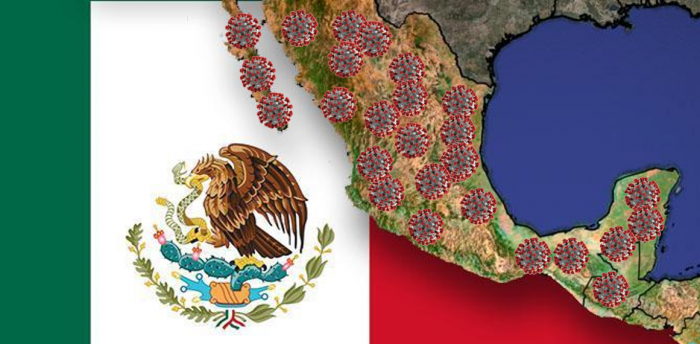One hundred ninety thousand deaths were preventable during the pandemic in Mexico. The country is among those with the highest number of deaths worldwide due to the coronavirus.
MEXICO (El Economista) – Deficiencies on the part of Mexican authorities in the management model of the emergency caused by the coronavirus pandemic led to a lack of care in controlling the virus. Experts estimate that if Mexico had acted as contagions progressed, 190,000 deaths from all causes would have been prevented in 2020, which makes up the excess mortality statistics.
After analyzing Covid-19 infections and deaths in Mexico, a report prepared by 29 experts for the University of California Global Health Sciences Institute (UCSF) concluded that national authorities failed to fulfill their stewardship role during the emergency. It includes assuming political responsibility for coordinating a unified national response.
The lack of clear, prudent, and correct communication about the actual level of risk and how to act upon contracting the disease has contributed to the “devastating impact” of Mexico’s pandemic. “Leaders have failed to send a correct and coherent message to reinforce public health guidelines through their own behalf,” states the document “Mexico’s Response to Covid-19: A Case Study,” which was commissioned by the World Health Organization’s Independent Panel to UCSF.
In the case of the emergency management model’s deficiencies, the experts noted that it was because the pandemic decision-making authority “was overly concentrated” in a single government body. It lacked institutional controls to minimize potential errors; besides, it did not have the necessary levels of independence to keep the technical aspects of risk assessment, planning, and project implementation free from political pressures.
“Mexico’s highest governing and health coordination body, the Consejo General (Salubridad) de Salud, was relegated to a secondary role throughout the pandemic,” it warned.
Mortality
The experts recalled that Mexico is among the countries with the highest number of deaths due to Covid-19. “Mexico ranks fourth in excess mortality (only after Peru, Ecuador, and Bolivia) in a global sample that includes all countries with more than 3 million inhabitants and with complete mortality data, with about 43% more deaths in 2020 than would have been expected in relation to 2018-2019. We estimate that if Mexico had behaved according to the pandemic needs, about 190,000 deaths from all causes would have been averted in 2020. This figure does not consider the peak of deaths observed in January 2021,” it warned.
On the other hand, it also indicated that national authorities failed to perform their leadership roles during the emergency and take political responsibility to coordinate a response to the pandemic.
“Due to a lack of shared understanding among national authorities, some subnational (state) governments… Partisan conflicts and polarization exacerbated these disagreements. Thus, the response to the pandemic remained fragmented between levels of government and polarized along partisan lines,” the experts considered.
The study noted that resource constraints and an unwavering commitment to austerity policies limited the range of possible measures to address the pandemic, so that “Mexico lacked vigorous government action and adequate fiscal support. Meanwhile, the “overly restrictive” virus testing policy undermined the ability to detect outbreaks and adequately estimate the burden of Covid-19 in the country.
Also, epidemiological surveillance systems have grossly underestimated the burden of Covid-19, as delays in health information systems have further inhibited decision-making based on accurate and timely epidemiological data.
Experts stressed that the vaccination plan is not sufficiently detailed and transparent.“Authorities have focused attention on the promise of universal vaccination without a comprehensive approach to controlling the pandemic. Concerns have arisen about the partisan-electoral use of the vaccination program,” given the relationship of partisan figures in managing the distribution of doses.
Besides, vaccination decisions do not follow a clear health logic of prioritizing rural areas and teachers, where the disease burden is relatively low. In contrast, the vaccination of health workers is not yet complete.



